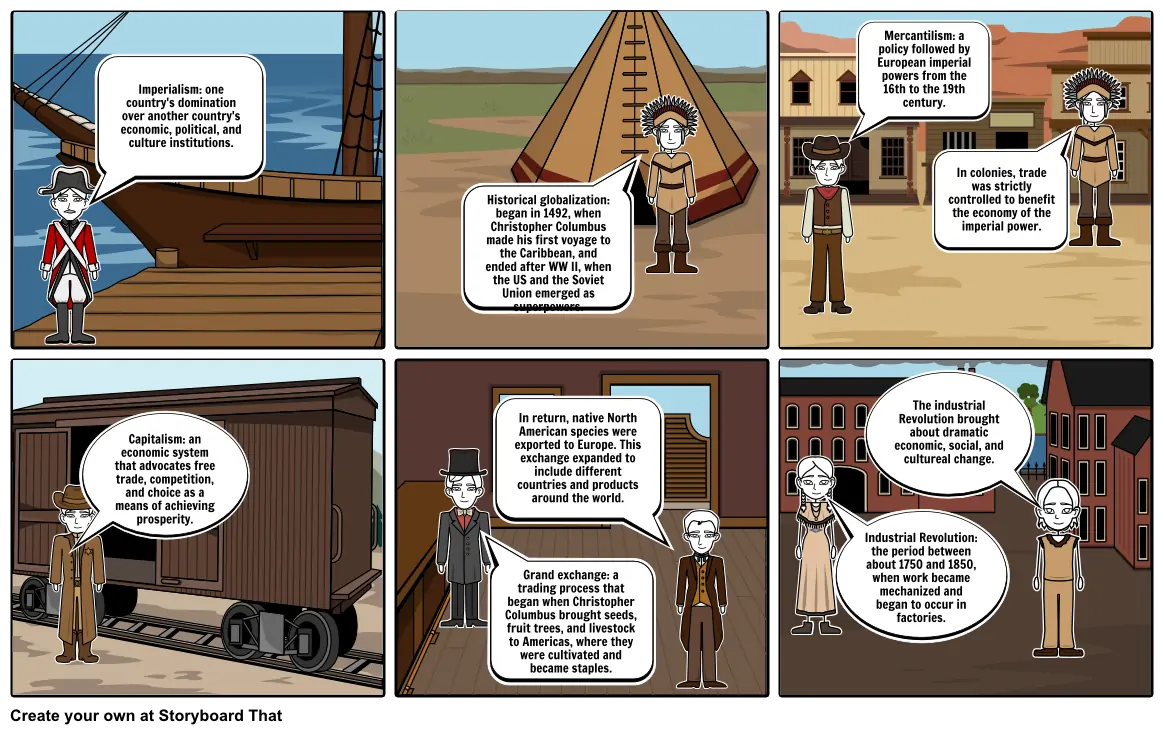cartoon of history globalization 1

Storyboard Tekst
- Imperialism: one country's domination over another country's economic, political, and culture institutions.
- Historical globalization: began in 1492, when Christopher Columbus made his first voyage to the Caribbean, and ended after WW II, when the US and the Soviet Union emerged as superpowers.
- Mercantilism: a policy followed by European imperial powers from the 16th to the 19th century.
- In colonies, trade was strictly controlled to benefit the economy of the imperial power.
- Capitalism: an economic system that advocates free trade, competition, and choice as a means of achieving prosperity.
- Grand exchange: a trading process that began when Christopher Columbus brought seeds, fruit trees, and livestock to Americas, where they were cultivated and became staples.
- In return, native North American species were exported to Europe. This exchange expanded to include different countries and products around the world.
- Industrial Revolution: the period between about 1750 and 1850, when work became mechanized and began to occur in factories.
- The industrial Revolution brought about dramatic economic, social, and cultureal change.
Meer dan 30 miljoen storyboards gemaakt

